
 Flash News
Flash News
Arrested a few meters from SPAK, the Special Prosecution seeks 17 years in prison for the drug 'boss'
Giro D'Italia starts today, here are the road axes that will be blocked in Tirana from 13:00-18:00
Who is the new Pope?
Pope Leo XIV greets the faithful for the first time in St. Peter's Square
"Freedom works", DP welcomes the US position

From Auron Tare
Yesterday at noon the fire destroyed Finiq, one of the most famous cities of the Ancient world.
Except for some dry news about an occasional fire, no one talked about the cultural disaster to this ancient city.
Surrounded by magnificent walls with monolithic blocks, with an Acropolis some 7 times bigger than that of Athens, with a Theater that could hold over 15 thousand spectators, with a history so glorious that few have it, Finiqi is forgotten, abandoned and largely unknown by the Albanian public.
The capital of Epirus, this place the Molossian royal family had its throne, where the Epirote Kaones flourished in trade, arts and culture. The place from where Alexander I of Epirus, the brother of Olympias, the mother of Alexander the great, began his military campaign and from where he transported the elephants sent by his famous grandson in military ships to the Italian peninsula.
The city where the Roman Republic and the Kingdom of Macedonia signed the first Treaty to end the fighting between them. Conquered and badly beaten by the Illyrians of Teuta who surrounded him without waiting, betrayed by the Gallic mercenaries and again beaten by the troops of Paulius Aemilius, the Roman Proconsul in the Epirote War, Phoenician was never burned. The greatness made all the fighting armies honor this famous city with an impressive culture and architecture.
Archaeological research and discoveries were signed for the first time in the time of King Zog, by the well-known archaeologist Ugolini. During the period of communism, a series of archaeological and restoration expeditions were carried out.
After the fall of communism, it was one of the places where it was systematically excavated by treasure seekers, severely damaging entire architectural structures.
In 1996, the famous Norwegian explorer Thor Heyderal visited Finiq with the idea of an international archaeological expedition for 97, he prevented this interesting idea.
In 2002, under the Butrint NATIONAL Park project, with the support of the private American Coolidge Foundation from Boston MA and the US National Park Service, it was possible to deploy a team of 6 rangers to protect this historical treasure.
With the arrival of Berisha II, this service was dissolved and since then Finici has been plunged into total institutional oblivion. If the reader will read that one of the Ministers of Culture did not know where Finiq fell or that a good part of the fathers of the Nation did not know what it is or where it falls, I am sure that they will not believe it. Unfortunately it is true.
Finiqi, like most of the National Heritage, is part of a terrible neglect and oblivion. Even though the creation of a structure that would protect and maintain cultural monuments was widely promised under the "floor" of the Institute of Cultural Monuments, or a dedicated structure regardless of the name, the Heritage Monuments are abandoned or forgotten.
Any excuses for absences or bureaucratic obstacles are totally untrue. With a simple calculation, you can understand that Butrint National Park (a small village at the time of Finic's greatness) generates around 2 million euros in revenue from tickets. 2 million euros are enough to maintain the entire network of cultural monuments in the Saranda area. Include here the direct or indirect state funds that go to Tenders in the field of tourism/heritage, you will see that it is not a matter of funds but of total incompetence and negligence towards Heritage.
Today's fire, which completely destroyed the Archeological Park of Finic, damaging the cultural monuments and ancient structures, best shows the abandonment of this city, only 9 km from Saranda.
The oblivion and abandonment of this magnificent city that today has become rubble has nothing to do with the barbarism of the past, but primarily with the indifferent spirit of the public and the bureaucratic incompetence of the Institutions, which do not understand that Cultural Heritage is the key to forward-looking tourism. and the opportunity for economic development.
Latest news


Spaho denounces: SP candidate in Pogradec gives 100 thousand lek for the vote
2025-05-09 11:27:26
Mustafaj: Proud of the worthy campaign of the DP
2025-05-09 11:22:20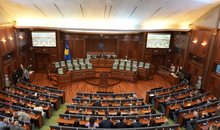
Constitution fails again, Kosovo still without a new Assembly
2025-05-09 11:06:55





"Votes have no price", the US embassy in Tirana 'slaps' Rama
2025-05-09 10:06:49

Two young men arrested for supplying criminal groups with firearms
2025-05-09 09:45:19







Foreign exchange/ How much foreign currencies are bought and sold today
2025-05-09 08:19:18
The gift that Berisha gave to Rama 'live'
2025-05-09 08:13:51
3 signs that show you are spiritually protected
2025-05-09 08:05:39

Bars can't hold back anymore, start increasing coffee prices, 4.7% more in April
2025-05-09 07:46:49

Horoscope, what do the stars have in store for you today?
2025-05-09 07:22:06
Unstable weather, afternoon brings rain
2025-05-09 07:01:29
Morning Post/ In 2 lines: What mattered yesterday in Albania
2025-05-09 06:45:46

How did LaCivita change the DP campaign? Berisha: He studied the opponent
2025-05-08 22:49:51

David defeats Goliath
2025-05-08 22:15:50

Journalist: There are SPAK infiltrators in party headquarters
2025-05-08 21:55:15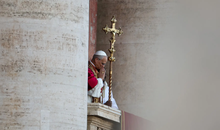
Who is the new Pope?
2025-05-08 21:48:13
Berisha finally reveals when he will retire from politics
2025-05-08 21:33:46


LaCivita in Lezha: Albanians will fire Edi Rama from his job
2025-05-08 21:11:20


Berisha: LaCivita chose us because he believes in Reagan's program
2025-05-08 20:48:40
He rejected America to serve Pogradec, Genti Çela tells about life in "Elevate"
2025-05-08 20:26:28




Pope Leo XIV greets the faithful for the first time in St. Peter's Square
2025-05-08 19:29:33




Photo session with LaCivitta in Tirana: For Great Albania
2025-05-08 18:40:18
Source: DASH decision a personal victory for Berisha
2025-05-08 18:30:10
Take off those crazy glasses and see where you've taken him?
2025-05-08 18:02:47
LDK files criminal charges against members of the incumbent Government
2025-05-08 18:02:00

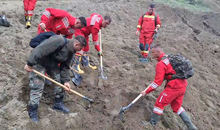
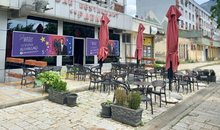




BIRN analysis: Tirana, the determining district for the future majority
2025-05-08 16:04:03




Chris LaCivita's contract with the DP, Berisha: 100% correct and clean
2025-05-08 15:11:11

"These are the peak days", Berisha reveals when he will travel to the USA
2025-05-08 14:45:25


Endless boxes with filled-in ballots, DP demands separation of votes from Greece
2025-05-08 14:11:12


Photo/ Who are the 3 associates of Talo Çela arrested in Dubai?
2025-05-08 13:37:09

Hetimi për krimet zgjedhore, Altin Dumani zbarkon në Prokurorinë e Shkodrës
2025-05-08 13:06:21
DASH paves the way for Berisha, Alizoti: Great news on the eve of Great Albania!
2025-05-08 13:03:48

"Freedom works", DP welcomes the US position
2025-05-08 12:48:07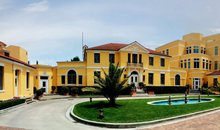
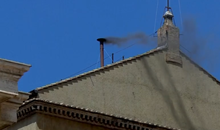
Black smoke rises from the Sistine Chapel, the Vatican still without a Pope
2025-05-08 12:26:18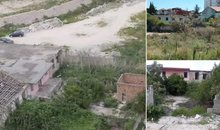





Davide Pecorrelli extradited to Albania
2025-05-08 11:29:04
'May 11, Albania will react', Xhaferri: Electoral criminals will pay
2025-05-08 11:21:46

Gjin Gjoni: Non Grata fell, Rama should get ready to go to McGonigal
2025-05-08 11:01:54
May 8th deadline for immigrants to vote in Greece extended by one day
2025-05-08 10:48:42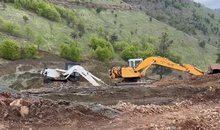
Collapse of massive chrome structure, still no trace of 29-year-old
2025-05-08 10:40:04
Vehicle bursts into flames in Paris Commune
2025-05-08 10:25:43
He gave land to his father and cousin, Basir Çollaku denounces the SP candidate
2025-05-08 10:16:16


